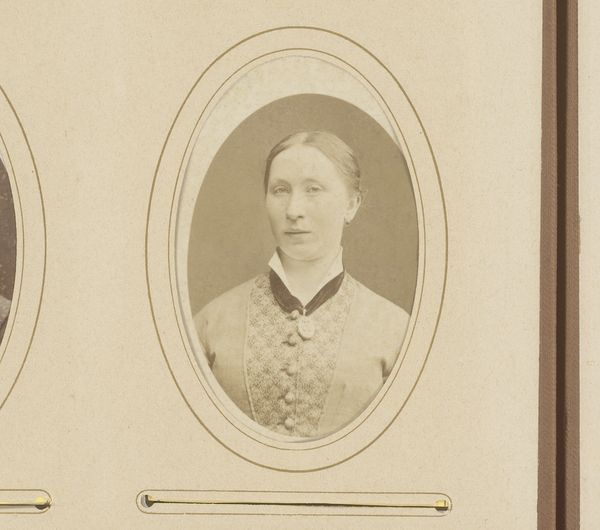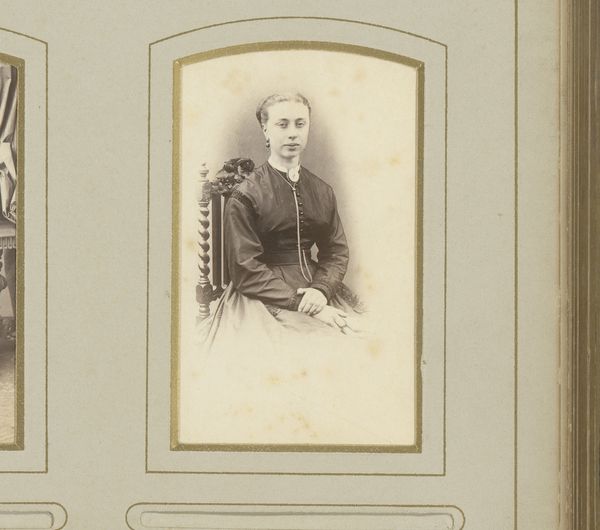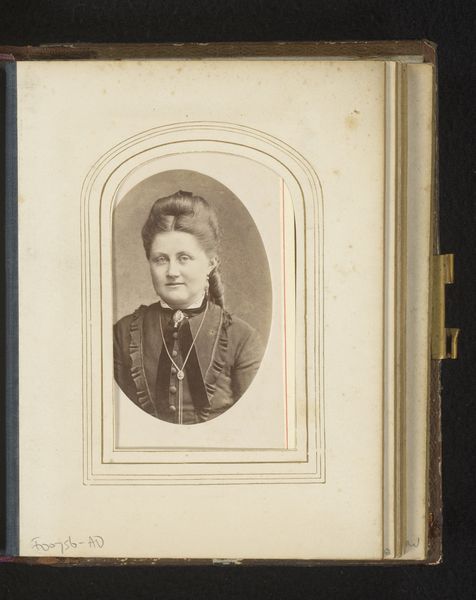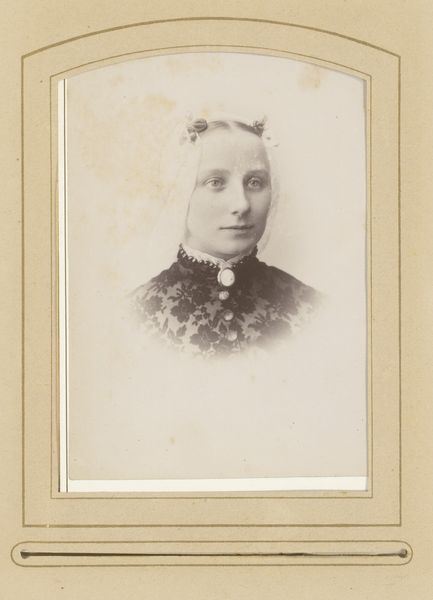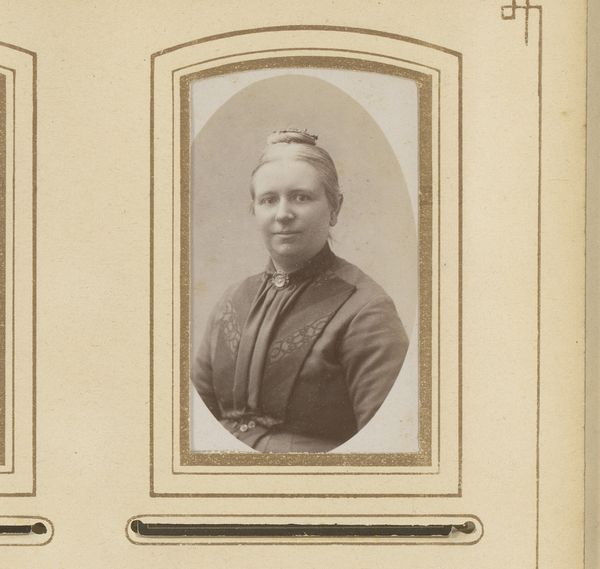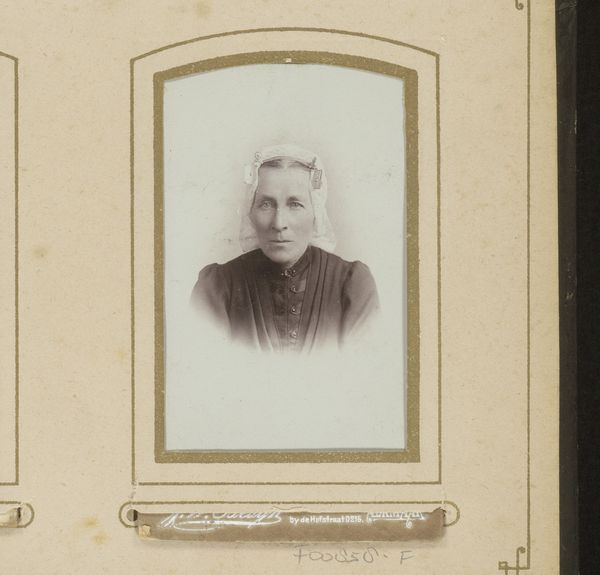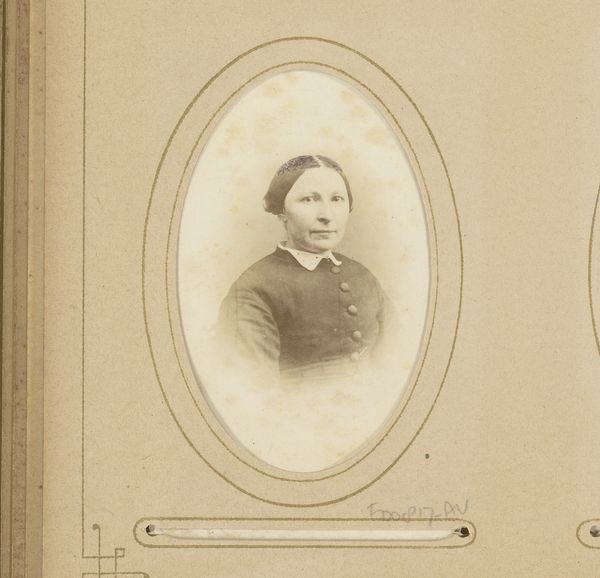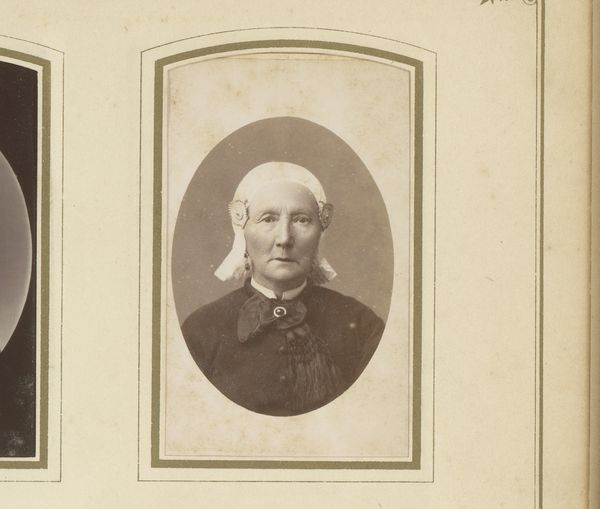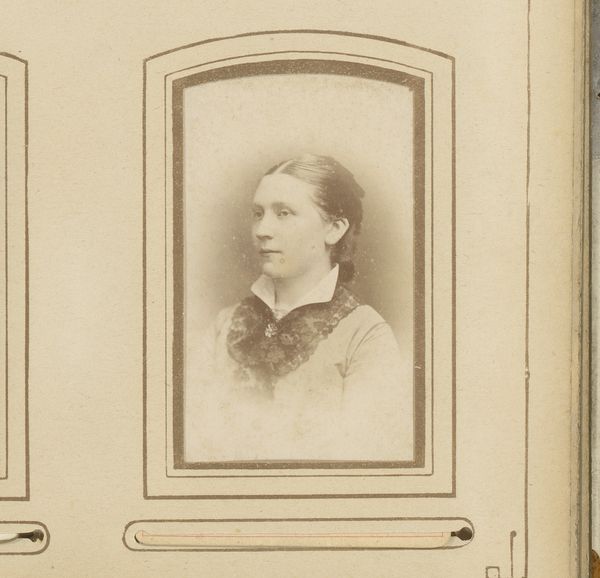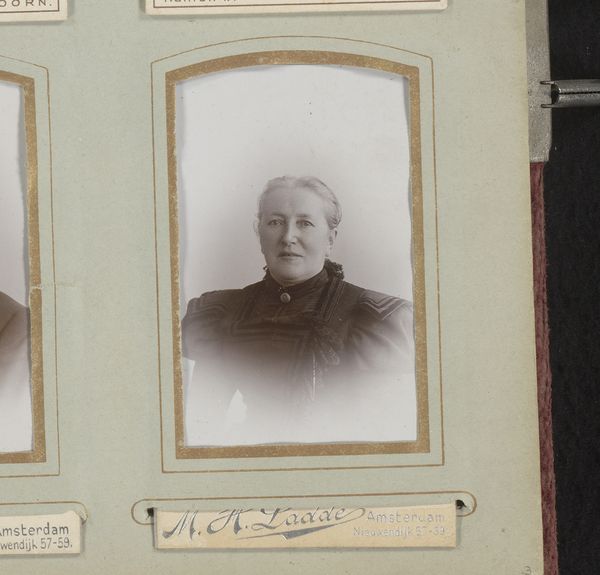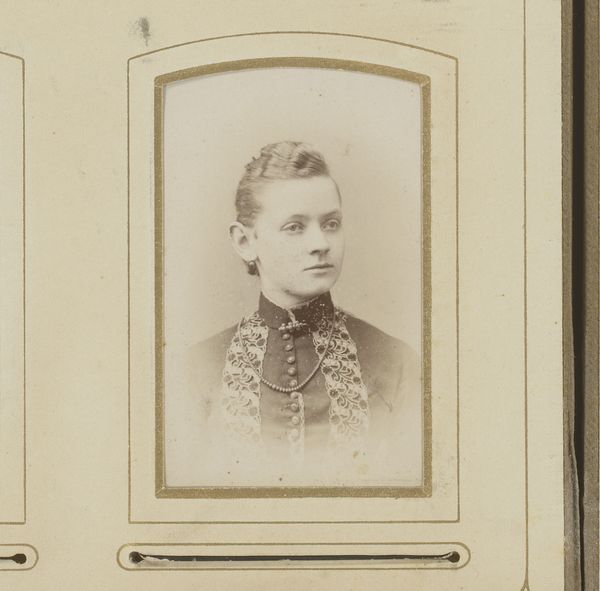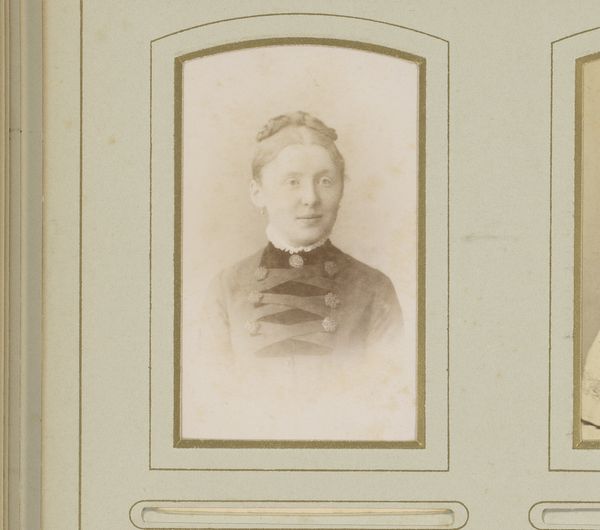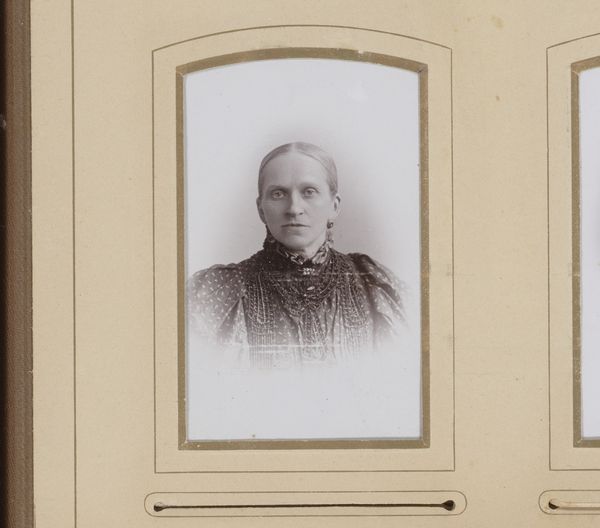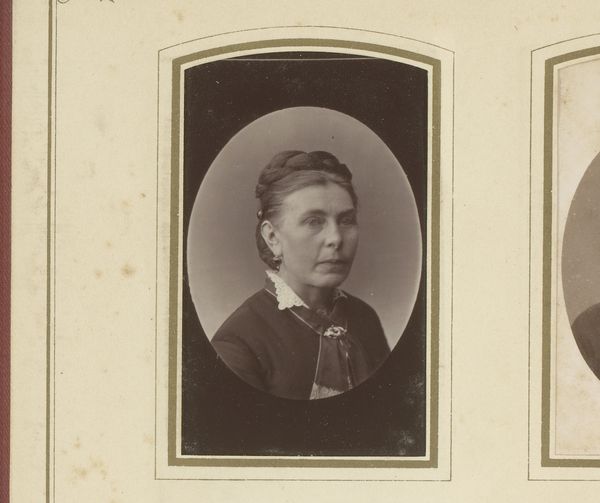
photography
#
portrait
#
photography
#
realism
Dimensions: height 84 mm, width 51 mm
Copyright: Rijks Museum: Open Domain
Editor: This is "Portret van een vrouw," a photographic portrait from around 1910 to 1930 by F.W. de Raad. The woman's direct gaze gives it an interesting intensity. How do you read the imagery in this photograph? Curator: I'm drawn to how realism intertwines with social messaging here. Photography, by its very nature, proposes a certain truth, but look closer. Her lace collar and the brooch, they're not mere decorations; they’re emblems of status, carefully chosen. Do you notice anything particular about her expression within the context of these status markers? Editor: Well, she's not smiling exactly, which I guess would have been more typical, even in a formal portrait. She looks…almost stoic? Curator: Precisely! The absence of a smile, common in many early portraits, does contribute to that impression, certainly. But also consider the broader narrative around women's roles at that time. This stoicism might reflect a perceived dignity or the burden of societal expectations placed upon her. Even the ornamental frame becomes a sort of cage, doesn’t it? Almost as though trapping the memory. Editor: That's a pretty strong reading, but I see your point! The image is so ordinary but then laden with symbolism like that. Curator: Indeed, and that tension is precisely what makes it compelling. These images act as powerful tools to encode and perpetuate cultural narratives through repeated symbolic representations. What do you make of how portraiture evolved, moving beyond strict representational likeness to hint at psychological depths? Editor: This makes me consider how different portraits, even snapshots today, are still packed with clues about the subjects and the times in which they lived. Curator: Yes, portraits act as complex visual artifacts! We've moved beyond just acknowledging its aesthetic qualities; now we also appreciate it as a profound symbol and signifier of cultural memory.
Comments
No comments
Be the first to comment and join the conversation on the ultimate creative platform.
